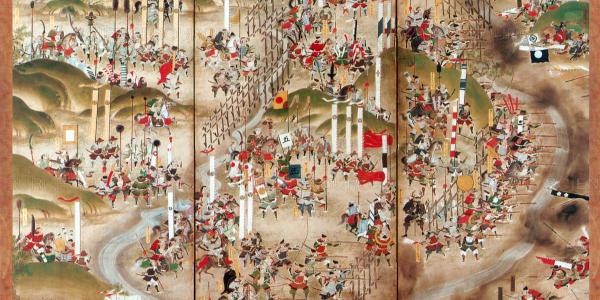One Thousand Tempests in a Teacup: Natural Disaster and Shingen's 'Bloodless Coup' of 1541
In the midst of the lengthy, successful reign as regional magnate (daimyo), Takeda Nobutora (1494-1574) was suddenly betrayed and exiled from his home province of Kai in 1541. Takeda retainers rallied around Nobutora's eldest son Shingen (1521-1573) and installed him as Takeda family head. None of this was unusual for Warring States Era (ca. 1450-1600) Japan, except for the fact that there was no violence as the province almost seamlessly transitioned into the reign of new warlord. Analyzing the coup as part of a larger response to an ongoing natural disaster, which began with a devastating typhoon in 1540, helps explain these unusual circumstances. Crisis exacerbated longstanding, latent tensions within Late Medieval Japanese society, yet out of these thousand tempests emerged avenues for a rare moment of solidarity among usually contentious samurai. Shingen's coup shows how, even in the most tumultuous of eras, calamity can catalyze both conflict and conflict resolution. It is moreover a useful tool for understanding the most salient points of contention within a particular group, which often lurk beneath the surface during calmer moments. We may yet draw some useful and even hopeful insights from this violent and destructive age, in which upheaval was nearly constant.
Dr. Elijah Bender is a specialist on premodern Japanese environmental history. His research examines how local resource disputes contributed to the development of non-violent mechanisms for conflict resolution during Japan's Warring States Era (ca. 1450-1600), and ultimately helped end a longstanding cycle of warfare and instability. He is currently preparing a book manuscript on the topic, entitled Contests over Environment in the Age of the Samurai: Local Society, Resources, and the Birth of Japan’s Early Modernity. Dr. Bender teaches world, environmental, US, and East Asian history at Concordia College in Moorhead, MN.
Sponsored by the Department of East Asian Languages and Cultures and the East Asian Studies Program
Registration required to attend Zoom talk.

